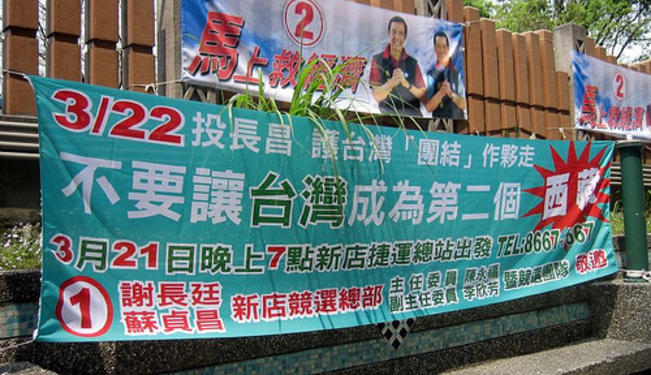Analysis on the election of Ma Ying-jeou in Taiwan and the effect of this on China’s relationship with its neighbor. 2012 is most likely to be remembered as a year that promised change: elections and the changing of the guards in governments will dominate the news. Taiwan's presidential election was the first of such events to take place, but it offered continuity, not change. Unlike the current Republican primary election in the United States which is filled with mudslinging advertisements and opinion polls that move up and down in rapid speed, the election in Taiwan was considered tame and subdued in comparison. This has not always been the case. Under the previous president Chen Suiben, Taiwanese politics was filled with scandals of corruption, threats of military confrontation with mainland China and suffered a high unemployment rate. Ma-Ying-jeou 's last four years in power were reasonably stable, beginning with the restoration of ties with the mainland, which resulted in an increased growth rate for the Taiwanese economy. Most media credits Ma's victory to his moderate way of governance, his good looks, his lack of a record in corruption and most importantly, and his perceived personal integrity (a fact that even his opponents had to admit). Born in Hong Kong and graduated from Harvard University in the United States, Ma Ying-jeou matched the profile of an elitist (an accusation which was used by the Republican Party media machine towards his Harvard alumnus, American President Barack Obama) yet the sincerity of his words and his firm belief in the legitimacy of the law never faltered, as was proven in the riots during the turbulent last days of the Democratic Progressive Party (DDP)'s rule. Of course, the success of Ma's victory had much to do with the realities of dealing with the emergence of a strong China and a weaker United States. Both countries expressed satisfaction with election results, which is important for peace and stability in the region. In Ma, they have found "the safe pair of hands" they have been looking for. Even though it would be folly for the mainland to expect a major breakthrough in the current status quo relationship, the Chinese would be reassured that the steady increase in co-operation between Taiwan and mainland China in business and culture would continue. While the people in Hong Kong wondered when they would be allowed general suffrage like their brothers in Taiwan, the people in mainland China also wondered about the same. With the rapid advances in media and technology, coupled with fewer travel restrictions to visit Taiwan, many Chinese are exposed to what is happening across the straits. In fact many of them speculated that it is only a matter of time before this could become a reality for them as well. However there are major differences. China is a big country, whereas Taiwan is much smaller in size and population. Another fact is that one of the most important components in having an effective democracy is an educated majority, a situation that still needs to be resolved in Mainland China. For now, all eyes are focused on this island, where the most important political experiment is currently taking place. Its success or failure would have unimaginable consequences for the Chinese speaking regions in Asia.
The views expressed in this article are the author's own and do not necessarily reflect Fair Observer’s editorial policy.
Support Fair Observer
We rely on your support for our independence, diversity and quality.
For more than 10 years, Fair Observer has been free, fair and independent. No billionaire owns us, no advertisers control us. We are a reader-supported nonprofit. Unlike many other publications, we keep our content free for readers regardless of where they live or whether they can afford to pay. We have no paywalls and no ads.
In the post-truth era of fake news, echo chambers and filter bubbles, we publish a plurality of perspectives from around the world. Anyone can publish with us, but everyone goes through a rigorous editorial process. So, you get fact-checked, well-reasoned content instead of noise.
We publish 2,500+ voices from 90+ countries. We also conduct education and training programs
on subjects ranging from digital media and journalism to writing and critical thinking. This
doesn’t come cheap. Servers, editors, trainers and web developers cost
money.
Please consider supporting us on a regular basis as a recurring donor or a
sustaining member.
Will you support FO’s journalism?
We rely on your support for our independence, diversity and quality.






Comment